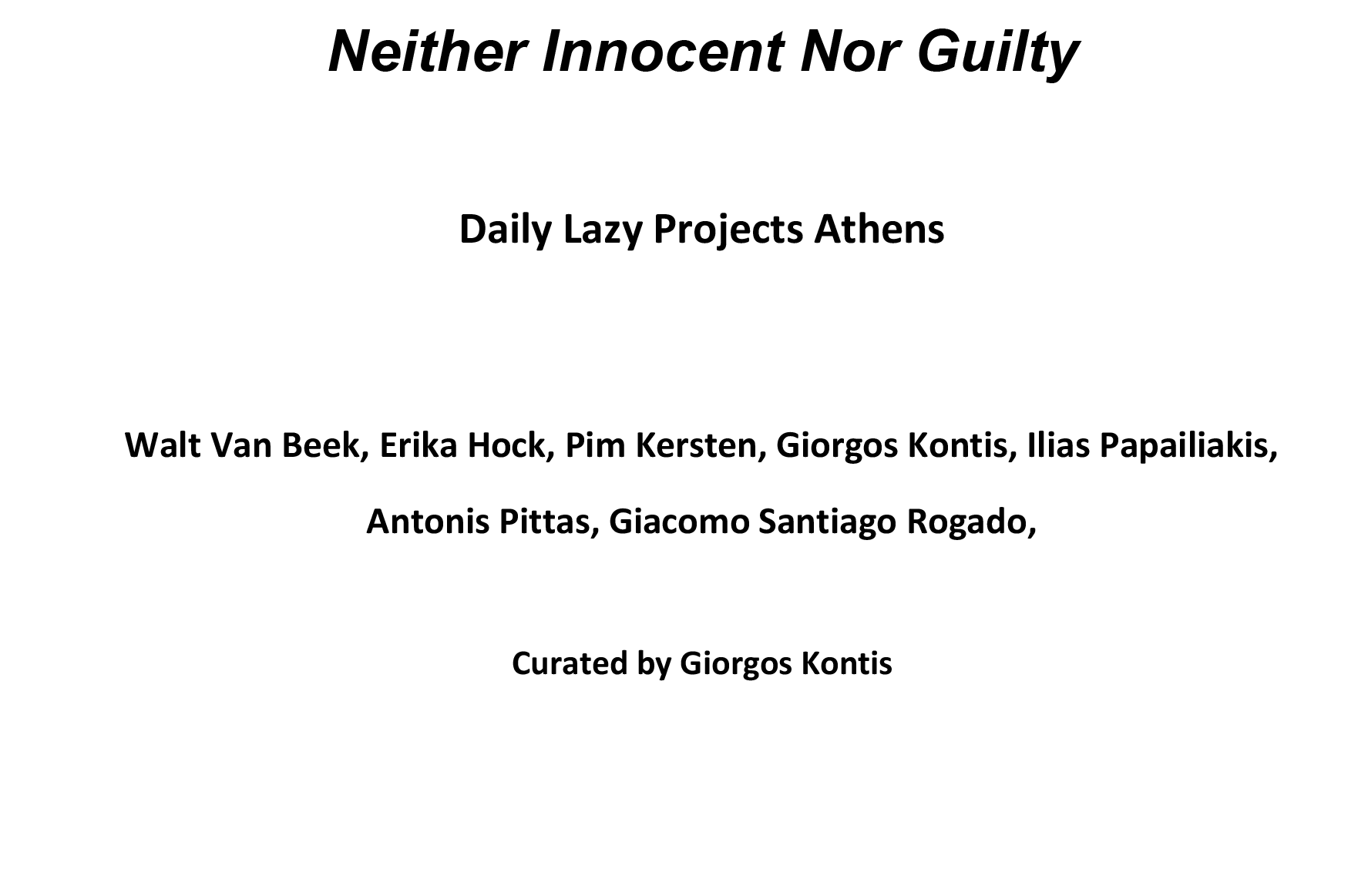| |

The new is new in
its relation to the old, to tradition. 1
The aesthetic regime of the arts is first of all a
new regime for relating to the past. It actually
sets up as the very principle of artisticity the
expressive relationship inherent in a time and a
state of civilization. 2
The making of art comes along with a sense of
repetition; instead of a Tabula Rasa there is a
confrontation and an endeavour in dealing and
being in a dialogue with the past and the spectres
that come along with it. The past as both heritage
and burden, and a repetition that is inevitable
yet impossible as well; the work of art rooted in
tradition, yet an ever changing one with a sense
of an aura being constantly redefined. Formalism
after semiotics, medium specificity and a sense of
materiality that becomes questioned and explored;
expanded forms of painting and sculpture in an
endeavour to trace their relationship and its
continuity with the past, as well as with the
exhibition space that hosts and witnesses that and
becomes flexible -intangible and conceptual
itself.
The making of art as well as the exhibition space
as a figure are in an ever present challenge and
demand to be in sync with their time. What emerges
is a duality in the space the artwork inhabits; a
space in language, in its medium and cultural
context, and the exhibition space in which it is
physically present.
A coexistence of the work with the past and within
the cultural context, as well as within and with
the exhibition space. And, a question about how
seemingly traditional forms of art, such as
sculpture and painting, function in relation to
their present; being, simultaneously, in an open
dialogue with the past and history of their medium
and the heritage that follows it. The matter here
is not a case of medium specificity, it is rather
a state of flux of the aesthetic function of the
work and how this is intertwined with the
conditions that surround its making; a
relationship between the work and its ground,
whatever this may be.
Walt Van Beek is invited to create a site specific
installation aspiring to function as a basis for
the whole exhibition. A structure -conceptual or
even intangible- aiming to relate to the space and
to the function of exhibiting and displaying, and,
through that, to form a place or ground for the
other works.
1 Boris Groys, On the New,
Verso 2014, p.6
2 Jacques Ranciere, The
politics of Aesthetics, Bloomsbury Academic 2013,
p.20
|
| |

Exhibition view
Giorgos Kontis (middle right),
with Works by Giacomo Santiago Rogado (left), Ilias
Papailiakis (middle left), Pim Kersten (center) and
Antonis Pittas (right)
|
|